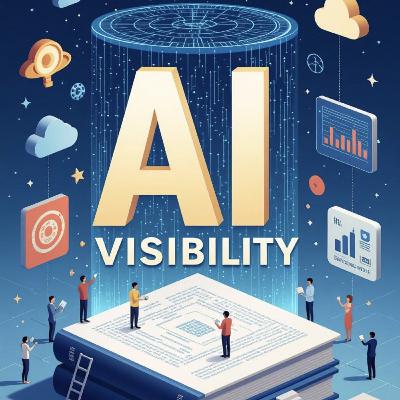AI Search Optimization Briefing Document - NinjaAI.com
Description
The digital search landscape is undergoing a significant transformation due to the rise of AI-driven platforms like Google's AI Overviews, Gemini, and ChatGPT. Brands that fail to adapt to these changes risk becoming invisible and losing out on valuable traffic, credibility, and brand awareness. This briefing document synthesizes key insights from "AI Search Optimization Case Study | The Search Initiative," highlighting the challenges, strategies, and successful outcomes associated with optimizing for AI search. The case study demonstrates that by implementing a targeted AI search optimization strategy, an industrial products company achieved a remarkable 2,300% increase in traffic from AI platforms and significantly expanded their visibility in AI Overviews.
Main Themes and Key Ideas
1. The Evolving Search Landscape and the Importance of AI Search Optimization
- Shift from Traditional to AI Search: "Search isn't what it used to be. With Google's AI Overviews and platforms like Gemini and ChatGPT changing how people find and trust information, brands that don't adapt risk falling behind." This emphasizes the critical need for brands to evolve their SEO strategies to encompass AI-driven search.
- Missed Opportunities: The client in the case study faced "missed opportunities for traffic, establishing credibility, and building brand awareness in AI platforms" due to their lack of visibility in AI search results, even with strong traditional search performance.
- AI Overviews' Dominance: Google AI Overviews are "AI-generated summaries displayed at the top of Google search results, often superseding traditional organic listings." This means that even top-ranking traditional organic results may not be the sources cited by AI Overviews, creating new opportunities and challenges for visibility.
2. Understanding Google AI Overviews
- Functionality: AI Overviews provide "quick answers to queries by consolidating information from various sources" and include "an AI-generated answer (powered by Gemini) and links to the corroborating source websites."
- Process of Generation: The process involves Google's AI interpreting query intent, selecting "a small set of high-quality, relevant, and trustworthy documents," generating a draft response, "fact-checking it against the selected sources," and finally displaying the verified summary. This highlights the importance of content quality, relevance, and trustworthiness.
3. Key Issues Preventing AI Search Visibility
The industrial products company initially faced several hurdles:
- Lack of AI Overview Visibility: Their content was "not being summarized, cited, or shown in Google's AI Overviews for relevant informational queries."
- Competitor Dominance: "Competitors, even those with perceived lesser product offerings, were successfully appearing in and being cited by AI-driven platforms."
- Expertise Not Recognized: The client's "established expertise and authority in their field were not being accurately reflected or leveraged by AI-driven search algorithms."
4. Tools and Techniques for Analyzing AI Search Visibility
- Ahrefs' Brand Radar: This tool helps businesses "track and analyze their visibility within AI-driven search results, such as Google's AI Overviews, ChatGPT, and Perplexity." It can be used to compare brand mentions against competitors and identify keywords where a brand is or isn't appearing.
- Ahrefs' Site Explorer: The "Organic Keywords report with the 'AI Overviews' SERP feature filter" allows users to "see all keywords for which your site ranks that trigger an AI Overview," and crucially, "identify keywords where your site actually appears within the AI Overview" versus "keywords where your site doesn't appear in the AI Overview, even if it ranks for the query." This helps pinpoint "missed opportunities."





